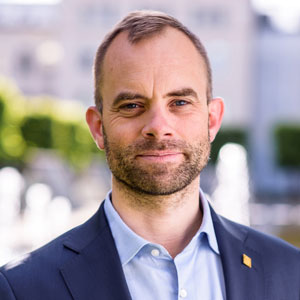Singapore and KTH join forces on AI

AI is reshaping how we work and learn – but how do we build inclusive and future-proof knowledge? On September 16–18, KTH/Digital Futures, Örebro University and Linköping University are bringing together leading actors from Sweden and Singapore to explore this question. Initiator Mattias Wiggberg hopes the symposium will serve as a starting point for joint strategy, research and policy on AI competence in society and education.

What’s the idea behind the AI Symposium this fall – why now, and why Singapore?
AI is fundamentally transforming both working life and education – and it’s happening fast. Singapore and Sweden have different but complementary strengths. By working together, we can develop new strategies for building inclusive and future-proof skills. Now is the right time to join forces.
What do you hope the participants – from KTH and the invited universities – will take away from the symposium?
We want all participants to leave with concrete ideas for new research projects, policy initiatives and collaborations – but also with a sense that it’s possible to influence the societal impact of AI. Technology doesn’t shape the future on its own – we do, through how we choose to use it.
Can you share something already – a theme, a speaker or a study visit – that you’re especially looking forward to?
I’m especially excited about our Deep Dive tracks on how universities can reclaim the initiative in an AI-dominated world. And I’m really looking forward to hearing Amy Loutfi, Program Director of WASP, speak about how generative AI is reshaping learning globally.
Why is this event important for KTH?
Because KTH wants to help define how AI is used responsibly – in society, in education, and in the workplace. This is an opportunity to lead, not just adapt.
